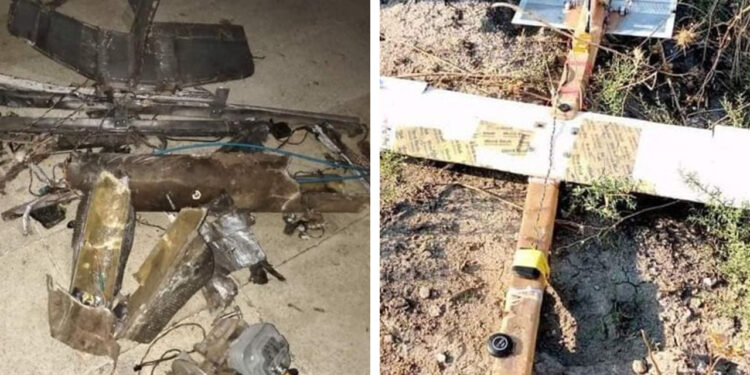Recent drone attacks in the Syrian city of Aleppo (Heleb) have raised concerns among both local and international communities. Particularly alarming was the latest attack, which targeted a Syriac/Assyrian neighbourhood, resulting in civilian injuries and material damage. A recent analysis that appeared on ANHA agency’s web page raises serious questions about the parties behind these attacks and their potential consequences.
The analysis suggests that these drones are believed to be launched from the western rural area of Darat Azza 30 km northwest of Aleppo city. Darat Azza is under the control of mercenary groups supported by the Turkish state, most of which appear on global “terrorist lists”. Sources indicate that these mercenaries could not produce drones without the backing of a state.
Russia’s lack of assistance to the Damascus government in this matter is also noteworthy. Modern radars and ground operation rooms and the continuous use of satellites make it much easier to detect drones. But although Russia possesses such technology, it does not appear to be employing it here.
There is also evidence to suggest that Turkey sees these attacks as an opportunity to further occupy Syrian territories and implement its National Pact (Misakı Milli) of 1919. The National Pact is a unilateral political declaration aimed at defining the territorial integrity of the Ottoman Empire. While it holds no standing in international law, it has been invoked in contemporary discussions as a foundation for Turkey’s potential territorial claims, especially concerning regions once part of the Ottoman Empire but now outside Turkey’s modern borders.
The majority of the attacks appear to be targeting military settlements, and there is speculation that Turkey is planning to replicate a scenario similar to that of the Military Academy in Homs, south of Aleppo city, on 5 October, when a drone attack on a graduation ceremony at the academy resulted in over 100 deaths and 150 injuries. The Syrian government attributed the attack to “terrorist organisations backed by international forces”.










